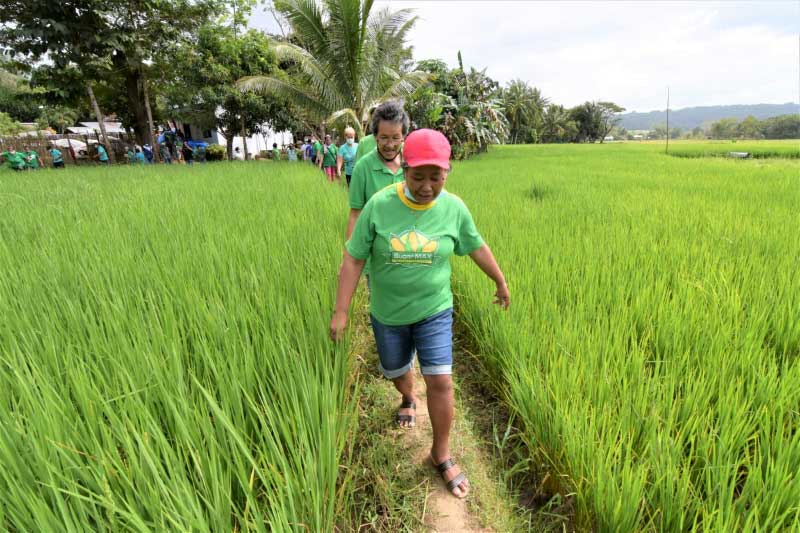
By Dolly Yasa
BACOLOD City – Negros Occidental governor Eugenio Jose Lacson said he sees no shortfall in the supply of rice in the province this year even in the face of a possible rice shortage in the country.
But Lacson also recognized that the province, which relies on the sugar industry, needs more rice production to cushion the looming shortage due to global demand and calamities.
“We will need to address that next year. If we listen to the President we are okay this year, we will have to address next year,” the governor told reporters on Thursday in Ilog town where he distributed livestock to farmers affected by Typhoon Odette.
The governor further said that “I think the President was very clear that there will be no rice shortfall. If it’s short of production, I think the resort is to import rice.”
But he noted that “we are only 84 percent rice sufficient, definitely we will need rice to come in our province”.
On the question that the price of rice has gone up by P10 per kilo, Lacson said “That’s the challenge, although the President is trying to bring down the price of rice at P25/ kilo.”
He also said that the problem is when India decides to stop rice exports as “that alone will affect us.”
“Although there are other countries that we get rice from, if India closes, those depending on India will now go to countries where we get our rice. I am afraid the Philippines may not be able to compete with bigger countries,” he added.
CERTIFIED SEEDS
Meanwhile, Negros Occidental recorded higher rice yield through the use of certified seeds as part of its initiatives to ensure food security among the Negrenses.
Data from the Office of the Provincial Agriculturist (OPA) as of Tuesday showed that production increased to an average yield of 97.92 cavans per hectare, from only 89.02 cavans in the past year.
Lacson said to close the supply-and-demand gap, the provincial government promoted farm-level productivity interventions through the Dagyaw Project.
“Even though we started this project in September of last year only, rice production has increased significantly,” he added.
In 2022, the province’s supervised seed growers produced 199,590 bags of certified rice seeds valued at PHP300 million while this year, 77,825 bags have already been produced worth PHP121 million.
For the past year, a total of 130,690 hectares of rice land were planted to rice in Negros Occidental, with 121,378 hectares harvested and production of 465,665 metric tons (MT) at an average yield of 3.84 MT per hectare.
Currently, the provincial government is equipped with complete farm mechanization facilities to mechanize a total of 12,540 hectares of rice land.
Some 200 job order workers have been deployed to facilitate the Dagyaw Project implementation.
“Our farm mechanization resulted in lower costs of preparation, transplanting, and harvesting services,” Lacson said, adding that this led Negros Occidental to attain a rice self-sufficiency level of 84 percent.
“Even with the limitations caused by climate change, the average yield for irrigated rice increased in this cropping period. With this trend, we are assured of food security until the end of the year,” he said.
The governor said to ensure food security and agricultural productivity, the province maximizes production in irrigated areas for farmers to be more confident in their production despite the threat of El Niño.
“This project will promote not just efficiency and sufficiency, but most of all, resiliency,” he added. (With a report from PNA)




















